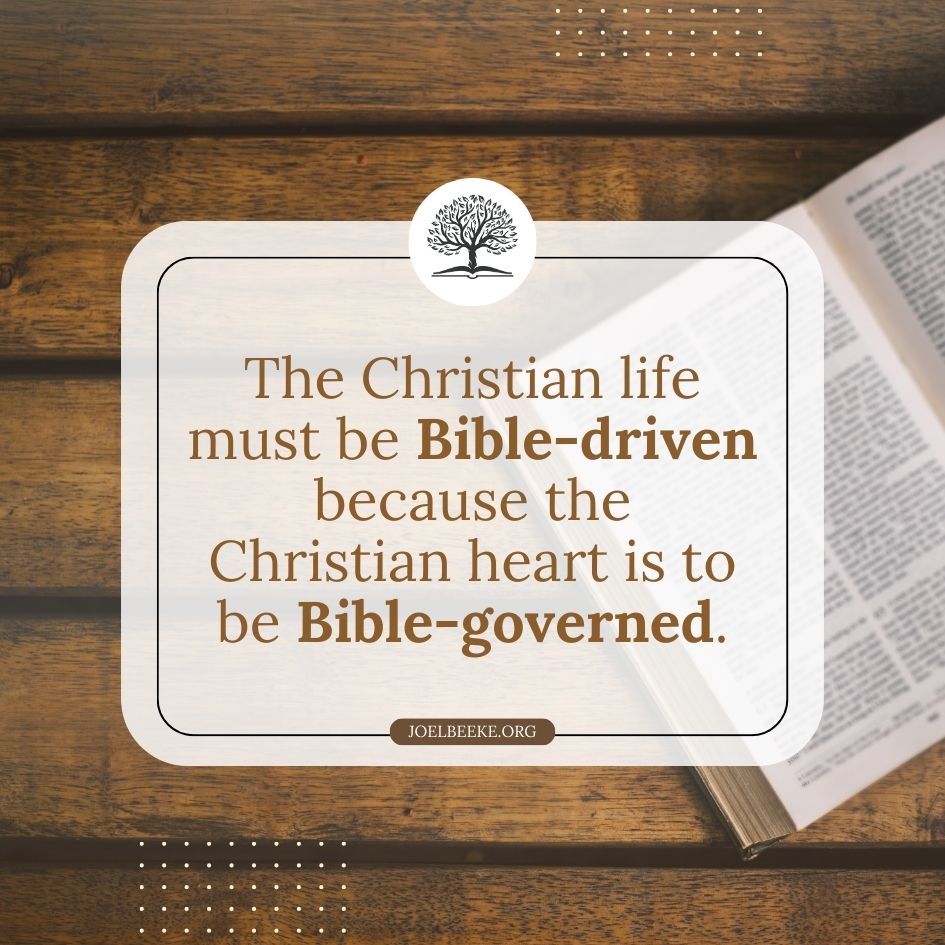
Because the Puritans had a high view of the Bible, they had a high view of God. Actually, it was their high view of God that led them to have such a high esteem for the Bible, because it is His self-attested, self-authenticating, inspired and precious Word. They “received it not as the word of men, but as it is in truth, the word of God, which effectually worketh also [in them] that believe” (1 Thess. 2:13).
John Flavel comments on the divine authority, commanding power, and transforming efficacy of the Scriptures:
Can the power of any creature, the word of a mere man, so convince the conscience, so terrify the heart, so discover the very secret thoughts of the soul, as to put a man into such tremblings? No, a greater than man must needs be here; none but a God can so open the eyes of the blind, so open the graves of the dead, so quicken and enliven the conscience that was seared, so bind over the soul of a sinner to the judgment to come, so change and alter the frame and temper of a man’s spirit, or so powerfully raise, refresh and comfort a drooping dying soul; certainly the power of God is in all this; and, if there were no more, yet this alone were sufficient to make full proof of the divine authority of the scriptures.1Flavel, The Method of Grace in the Gospel Redemption, in Works, 2:300.
Flavel draws attention to a common theme in Puritan writings. In their respect for the Bible, the Puritans made much of Isaiah 66:2: “To this man will I look, even to him that is poor and of a contrite spirit, and trembleth at my word.” They understood this trembling to be that of a filial fear toward God as Holy Father, a sincere reverence that led them to hang upon every detail of the Word with a humble heart and attentive conscience. The Puritan conscience was captive to God by the Word.
J. I. Packer said, “The concern which was really supreme in the minds and hearts of the people called Puritans was a concern about God—a concern to know him truly, and serve him rightly, and so to glorify him and to enjoy him.”2J. I. Packer, A Quest for Godliness: The Puritan Vision of the Christian Life (Wheaton, Ill.: Crossway, 1990), 107. In serving God, Packer tells us, the Puritans placed great emphasis on the necessity of securing and maintaining a clean conscience— one that, having been cleansed by Christ’s blood, is informed by the Bible. Packer explains how the soul of Puritan spirituality pertained to the inner life of the conscience, which “signified a man’s knowledge of himself as standing in God’s presence (coram Deo, in Luther’s phrase), subject to God’s word and exposed to the judgement of God’s law, and yet—if a believer—justified and accepted nonetheless through divine grace.”3Packer, A Quest for Godliness, 108. Living for God’s glory meant serving Him out of a justified and purified conscience, and serving Him with a clean conscience meant bringing the enlightened conscience into full and integral subjection to the Book by the grace of the gospel.
The Christian life must be Bible-driven because the Christian heart is to be Bible-governed. Packer writes, “To them, there could be no real spiritual understanding, nor any genuine godliness, except as men exposed and enslaved their consciences to God’s word.”4Packer, A Quest for Godliness, 107. True piety, according to the Puritans, is the living Word of God exercising its efficacious influence on the totality of our human existence, from the inner life of the heart to the outward life of practical living. Puritan devotion sought to engage the whole person with the whole Scripture, bringing every faculty of the human constitution into conformity to the whole counsel of God. That is what it means to bring sola Scriptura into holistic application—to be zealously consumed with a theocentric worldview that seeks to bring all of creation under the authoritative Scriptures to the praise of God.
Excerpt from
Thriving in Grace: Twelve Ways the Puritans Fuel Spiritual Growth
By Joel R. Beeke and Brian G. Hedges








